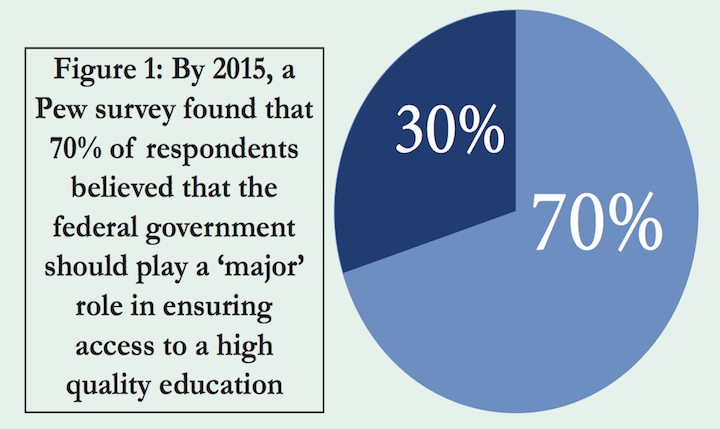Parents’ Conflicted Interests with School Choice
Abstract
Scholars have done extensive work to assess opinion on the performance of their local public schools, their support for expanding school choice, and their view on the role education plays in ensuring success later in life. Research has indicated that parents are generally more supportive of their local public schools than the national educational system and that they are personally conflicted between their political views of school choice and of transferring their own children from their local public school to a charter or private school. Furthermore, while school choice is generally favored (depending on the program’s structure), respondents in polls have pointed to other means of improving public schools other than expanding school choice. While many respondents now believe that the federal government should be more active in improving education, public opinion on pre-existing efforts to do so is split and can have problematic methodology. Finally, education has been perceived by many to be an important factor towards having a successful career. However, Martin argues that surveys should focus more on the relationship between parents’ views on their local schools, the national education system, and the impact of their child’s education on their future to their opinion on expanding school choice. These factors in public opinion on school choice are significant because they can indicate whether or not the federal government should be responsible for expanding (or limiting) school choice.
Downloads
Published
2018-01-06
How to Cite
Martin, A. (2018). Parents’ Conflicted Interests with School Choice. Colloquium: The Political Science Journal of Boston College, 2(1). Retrieved from https://ejournals.bc.edu/index.php/colloquium/article/view/10246
Issue
Section
Articles
License
Copyright (c) 2017 Adam Martin

This work is licensed under a Creative Commons Attribution 4.0 International License.
Please follow the link for further Copyright and License Information.

